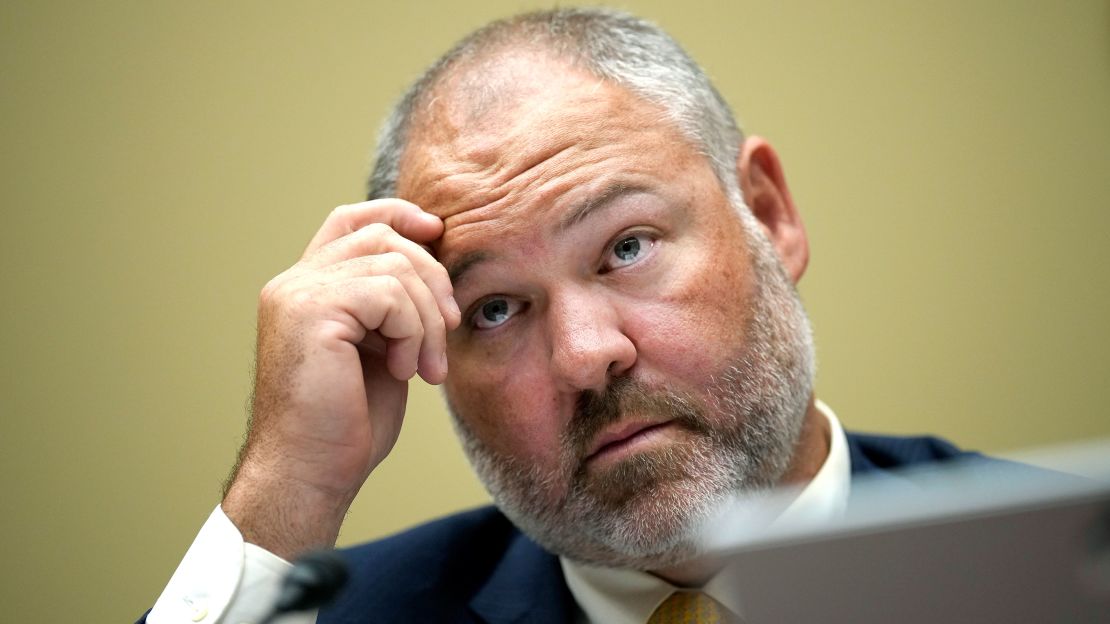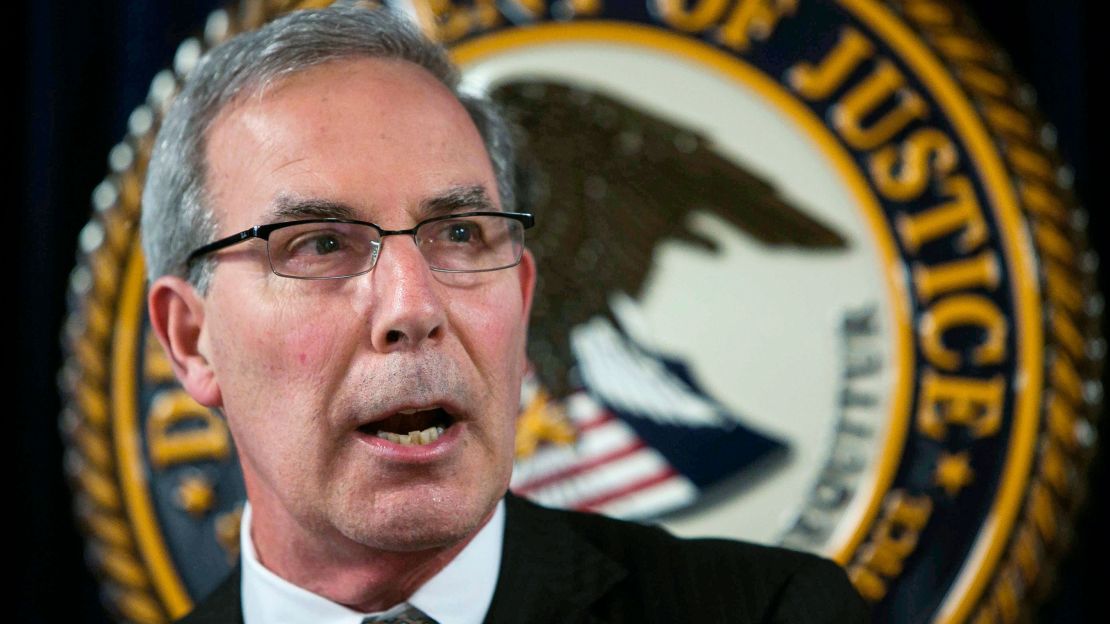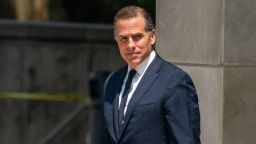A high-ranking Internal Revenue Service official has disputed claims by a whistleblower whose allegations about political interference into the Hunter Biden tax investigation are central to House Republican impeachment inquiries against President Joe Biden.
In closed-door testimony obtained by CNN, IRS Director of Field Operations Michael Batdorf told a House committee last week that it was his decision to remove the whistleblower, Gary Shapley, from the criminal probe into Biden’s son in December 2022. But Shapley wasn’t informed of that decision until May, the same month he brought his claims to Congress.
Batdorf, who testified at the behest of House Republicans, directly contradicts Shapley’s claims that he was removed from the investigation as a direct result of his decision to criticize the way IRS and Department of Justice officials handled the high-profile tax case.
“I just want to go on the record. In my 22.5 years, I have never made a decision or restricted anyone out of spite, out of retaliation, out of anything,” Batdorf stated. “That is not who I am.”
Batdorf testified that he removed Shapley from the Hunter Biden probe due to Shapley’s deteriorating relationship with US Attorney David Weiss, over what Batdorf said were “investigative differences, prosecutorial differences.”
According to Batdorf, by November 2022, Weiss had decided to stop talking to Shapley. “It was David Weiss’ moment of: I’m not talking to him anymore. He’s harassing me,” Batdorf said in describing an email from Weiss.
In his interview, Batdorf complimented Shapley for his work ethic, calling him a “fantastic agent” and “passionate” but also said there had been concerns over Shapley’s behavior for months.
“Gary has a tendency to go to level like grade seven, five-alarm alarm fire on everything” Batdorf testified. “He has a mindset that if you don’t agree with him, I mean, you’re just incompetent,” Batdorf said.
‘A nonpolitical organization’
Batdorf also took issue with Shapley’s decision to characterize Justice officials based on the president that appointed them.
“It’s unusual” Batdorf testified. “We’re supposed to be a nonpolitical organization.”
Shapley’s legal team told CNN that after his client spoke up about the “improper handling of the case,” Weiss “refused to interact with him – which is obvious retaliation for protected whistleblower disclosures regardless of whether Mr. Batdorf wants to admit it.”
Batdorf said that Shapley was not informed of the decision to remove him from the Hunter Biden case right away because at the time the case was at a standstill.
“There was not a reason to engage Gary Shapley on that until we knew the case was going to go forward,” Batdorf testified. “It would have been a waste of resources to assign a new investigative team to get up to speed on an entire investigation and then not have it go anywhere.”
During that time, Weiss, the US attorney in Delaware, was trying to determine whether he could partner with other US attorney’s offices in either California or Washington, DC.
Batdorf testified that Shapley informed him in January of his intention to go to Congress with his complaints. The case against Hunter Biden didn’t restart until May, roughly a month after Shapley first provided information to Congress. Shapley was finally informed he was off the case on May 15, according to Batdorf, eleven days before he would first testify behind closed doors to the House.
Shapley has claimed his testimony is what pushed Weiss to restart his work, a point Batdorf did not refute.
“David Weiss made his decision to go forward in May, “Batdorf testified. “I’m not sure what drove that decision.”
Other witnesses dispute Shapley claims
Batdorf is the latest government official to dispute portions of Shapley’s whistleblower allegations.
Several FBI and IRS officials brought in for closed-door testimony by House Republicans in recent days said they don’t remember Weiss saying that he lacked the authority to decide whether to bring charges against the president’s son, or that Weiss said he had been denied a request for special counsel status.

Those twin claims, made by Shapley, form the basis of Republican accusations that the Justice Department’s investigation into Biden’s taxes was tainted by political influence and that Weiss and Attorney General Merrick Garland tried to protect Hunter Biden in the investigation.
The new testimony comes as House Republicans begin an impeachment inquiry into the president and his family, potentially undercutting one element of that effort.
In June, Weiss reached a plea deal with Hunter Biden on tax and gun charges. But the deal fell apart amid scrutiny from a judge, and Weiss subsequently requested special counsel status. Last week, Hunter Biden was indicted on the gun charges. Biden has told the court that he plans to plead not guilty to the charges.
‘Tell him to leave me alone’
According to Batdorf’s testimony, in November 2022, a month after a key meeting between Weiss, Shapley and other agents working on the Hunter Biden investigation, Weiss informed Shapley’s supervisor, Darrell Waldon, he would no longer be speaking to Shapley.
“In my 22.5 years of experience and all the different field offices and leadership positions I’ve been in, that is not a good sign,” Batdorf said. “That is extremely troubling.”
“It was November, and it was David Weiss’ moment of: I’m not talking to him anymore. He’s harassing me. He didn’t say it, but in his email he basically says: Tell him to leave me alone. I’m not talking to him anymore. At that point, it’s not a good situation for any – investigative team to be in,” Batdorf, who was forwarded the email, testified.

Waldon separately testified to the House Ways and Means Committee that Weiss told him after an October 2022 meeting that he would “not be talking with Mr. Shapley henceforth, as they were going through their deliberative process.”
Batdorf said that in December he was on a phone call with Weiss and Waldon to discuss how to overcome roadblocks preventing the investigation from moving forward and Weiss raised Shapley as one of his concerns.
“At a very general level, David Weiss had concerns with Gary Shapley’s ability to remain objective in the investigation” Batdorf said of the December phone call.
According to Batdorf, Weiss “never specifically stated” that Shapley and his team had to be removed and acknowledged that he does not control IRS resources.
“I don’t want to speak for David Weiss. It was not my impression that he was retaliating. It was my impression that Darrell and I were doing everything we could to move the case forward” Batdorf said.
Waldon also testified that he recommended to Batdorf that Shapley be removed from the case, due to what Waldon described as Shapley’s “unsubstantiated allegations about motive, intent, bias,” according to Waldon’s testimony to the House committee.
Shapley decision to blow the whistle
Batdorf manages approximately 1,000 people nationwide, and in his testimony said that only one regularly broke ranks to come to him directly with an issue: Gary Shapley.
Batdorf said that he was well aware of Shapley’s concerns that the Hunter Biden criminal probe was being slow-walked and mishandled and tried to support him. Batdorf agreed that there was plenty of evidence to charge the president’s son. His decision to remove Shapley, he argued, ultimately stemmed from his desire to get the case over the finish line.
Batdorf also testified that he supported Shapley’s decision to become a whistleblower.
“When he told me that he was a whistleblower, I offered support,” Batdorf said. “It’s your right and your role. You don’t need to take leave. You can – it’s your right as an agent to go do what you need to do. So stuff like that, that was the support.”


